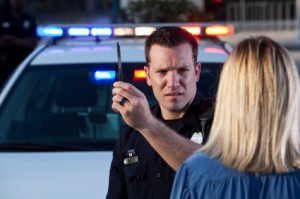 The majority of DWI cases that are heard in court are dependent on the arresting officer’s testimony. It is the officer’s testimony that will often establish the defendant was impaired at the time he or she was operating a motor vehicle.
The majority of DWI cases that are heard in court are dependent on the arresting officer’s testimony. It is the officer’s testimony that will often establish the defendant was impaired at the time he or she was operating a motor vehicle.
Generally the officer must observed the defendant operating the vehicle on the road in order to establish the defendant was in fact driving the vehicle at a point in time he or she was intoxicated. There may be limited circumstances existing in North Carolina however that would allow a charge of DWI to stand in a case where the officer did not observe the defendant driving.
This is what happened in State v. Fuller. A police officer arrived at the scene of accident and noticed immediately the defendant had an odor of alcohol on her and that her speech was slurred., State v. Fuller 176 N.C. App. 104 (2006). In addition he testified her eyes were red, bloodshot and glassy. Id. The defendant admitted to the officer she had been drinking and the State had an expert testify that her BAC at the time the defendant made contact with the officer was a .08. In this case the court held this evidence was enough to support a conviction of DWI. Id.
In State v. Reeves the court found there was sufficient evidence to support a DWI conviction where the defendant admitted to driving the vehicle and the State also presented evidence that no one was in the vehicle other than the defendant, who was in the driver’s seat when the officer arrived at the scene of the accident. State v. Reeves, 721 S.E.2d 317 (2012)
In sum even in cases where an officer does not observe someone driving a DWI conviction may result if someone admits to driving the vehicle or the State can present evidence that shows the defendant was driving. Of course the State must also show the defendant was impaired at the time he or she was driving as well.